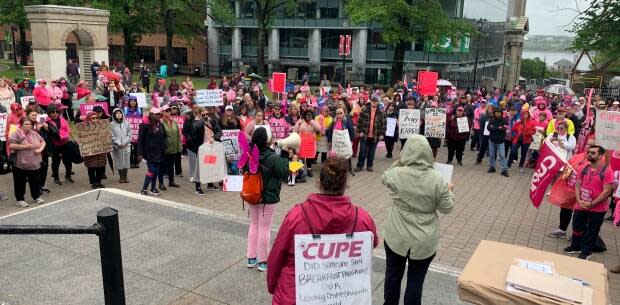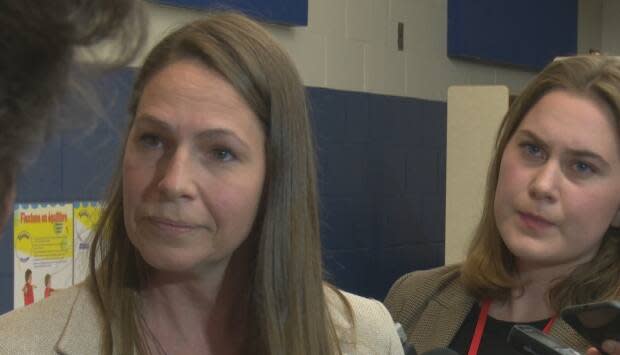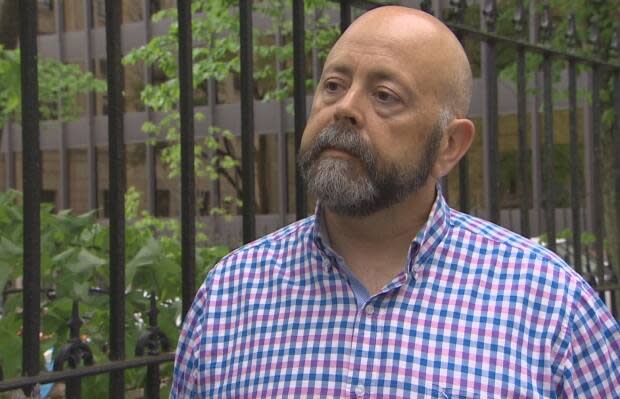Rally for striking school support workers calls on province to return to bargaining table

As an educational program assistant at Nelson Whynder Elementary School in North Preston, N.S., Lesley Fraser says there's no place she'd rather be than in the classroom working with students.
But on Tuesday, Fraser was part of a group of several hundred people that included members of CUPE Local 5047 who attended a rally in downtown Halifax's Grand Parade on the 28th day of a strike by school support staff and pre-primary workers.
"It is not just about us and it is not just about the money, it's about the care we give our students and it's very valuable," said Fraser, who makes $762 every two weeks when she's not on strike. "But I feel like [Premier] Tim Houston and all the other MLAs are not listening to us."
Money, however, is a key issue in this strike.

Although union locals for seven of eight regional centres for education in the province accepted the agreement reached by the government and CUPE, the 1,800 members of Local 5047 for the Halifax region did not.
A big reason is that the 6.5 per cent raise over three years the government agreed to pay workers across the province did not have the same effect in Halifax, where there have been larger cost-of-living impacts in recent years.
"A lot of our members don't take a lot of money home at the end of the day," said CUPE Local 5047 president Chris Melanson. "They're making decisions on what do we pay for — is it rent, is it groceries, is it utilities — and they're struggling."
Education Minister Becky Druhan has said CUPE brought key demands to the bargaining table, including wage parity across the province, and the government met them.

As she has in the past, the minister said it would be up to CUPE and members of Local 5047 to determine the path forward.
"And when they've done that and have reached back out to HRCE to get back to the table, I'm sure that HRCE will be ready and willing to go with them," Druhan told reporters following a cabinet meeting last week.
Melanson takes a different view.
"If government is saying, 'We're looking to raise people up,' they shouldn't be proud to say, 'We raised other areas up to the level of poverty that HRCE workers are seeing."
Melanson and Fraser said the government needs to come up with meaningful wage increases the way they have for continuing care assistants and early childhood educators who work outside the pre-primary system.
While both sides wait to see if talks will resume, many students are unable to attend school.

The strike meant the approximately 3,000 pre-primary students in the Halifax region had to stay home, in addition to the 600 students who require support from educational program assistants.
After workers walked off the job, officials with the Halifax Regional Centre for Education put out a call for replacement workers to try to get some students back in the classroom. A spokesperson for the region said in an email on Tuesday that that effort has led to about 270 students returning on either a full- or part-time basis.
Lindsey Bunin said the region is also making use of its casual and substitute employee lists, redeploying staff working in the central office and using home learning to ensure "reasonable opportunities" for all students to access education during the strike.
Druhan said the goal is to get all students back into their classrooms as soon as possible.
But Melanson said the way to do that is at the bargaining table.
"We're not looking to break anything, we're not looking to be greedy, we're not looking to get rich — nobody in our local will ever get rich."
MORE TOP STORIES

